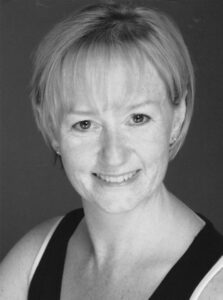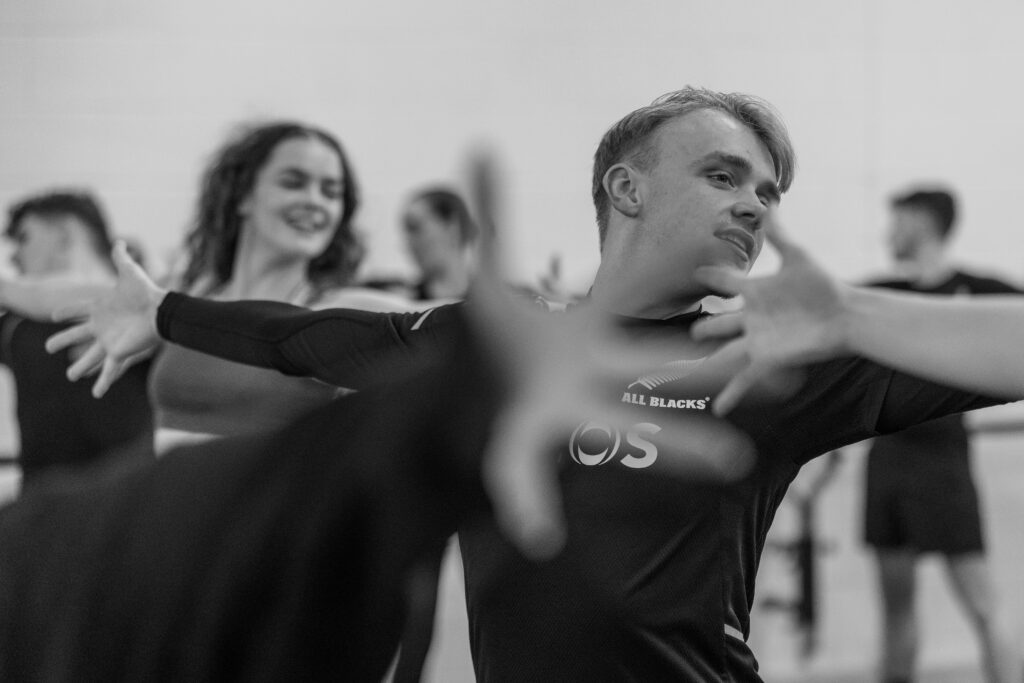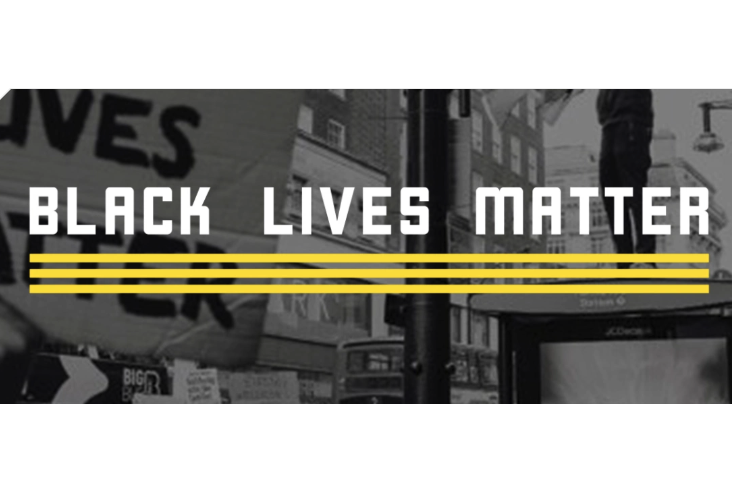 At our Essex campus you’ll find our Trinity College Diploma in Musical Theatre and Dance. We caught up with Course Leader Sandra Madgwick to answer your most frequently asked questions about the course.
At our Essex campus you’ll find our Trinity College Diploma in Musical Theatre and Dance. We caught up with Course Leader Sandra Madgwick to answer your most frequently asked questions about the course.
What is a Trinity College Diploma?
The Trinity Diploma is specially designed for you to become a successful professional dancer and/or musical theatre performer. The qualifications have been running since 1999 and were developed with advice taken from members of the theatrical professions, the Council for Dance Education & Training, and the National Council for Drama Training. There are lots of Trinity Diploma graduates working across all sections of the industry, including in West End productions, touring shows, on cruise ships, in the commercial sector, on TV, in film, as choreographers or directors. You can read about some of our graduates who’ve worked on Moulin Rouge, Wicked, and other shows on our blog.
The Trinity Diploma at Performers College provides an industry recognised qualification at Level 6 (which is equivalent to degree level) equipping you with the skills, knowledge and understanding required to be a professional performer and practitioner within the creative industries.
Trinity Diploma students also have access to the same specialist departments who are there to help guide and support you, such as our Creative Futures Team who help to connect you to industry opportunities, such as in house auditions for visiting companies and weekly workshops with industry professionals. The Creative Futures Team also run Agent Panel Days, where you’ll get to perform as an individual in front of agents and employers, which often leads to students being offered representation!

What are the differences between the Diploma and the BA (Hons) Degree?
Both our Trinity Diplomas and BA (Hons) courses are Level 6 qualifications, and take three years to complete, but there are some differences between them.
Firstly, the entry requirements; you can start the Diploma course aged 16+ and you are assessed purely on an audition with us, whereas a degree begins at 18 years old as it requires a UCAS application and an audition. Secondly, The Diploma is focused on vocational training, and less so on theory. There’s also a difference in how your tuition fees are paid. Performers College is allocated DaDA funding for eligible applicants, whereas a degree is paid through traditional student loans.
What will I study on the Trinity Diploma?
Each Diploma comprises of various units:
Technical skills: In Year 1 you will be introduced to the fundamentals of dancing, singing and acting which you’ll develop in Year 2 alongside multiple performance opportunities. This leads to the high level of mastery in year 3, culminating in a final showcase. In year 3 you’ll also specialise in key subjects taken from Jazz, Tap, Contemporary, Ballet, Acting and Singing.
Professional Practice: This is the contextual element of the course, and it provides you with the opportunity to develop your knowledge of the skills needed to gain and sustain employment. It is internally assessed by Performers College and externally moderated by Trinity. The focus is on reflection and research and includes amongst other projects:
Measuring and setting goals for your progression in daily classes. Investigating and researching areas of the industry that are of interest to you and reviewing a professional show. Year 3 also takes an in-depth look at the skills needed after graduation, such as Income Tax, Spotlight and terminology integral to the creative industries.
Performance Unit: This unit allows you to demonstrate the technical skills you have acquired and demonstrate your understanding of how to effectively engage an audience. A main feature of the third year is performance experience. The varied performance programmes include creating your own show and performing in showcases created by the staff. You can also benefit from work experience which is accessed via the Creative Futures Team and the many staff who still work within the industry.

How many Contact Hours are there?
You’ll be on campus for 30 hours a week on the Diploma course. The delivery of these hours alters slightly from year to year as the course develops and the varied performance units are introduced.
What is the difference between a Dance Diploma and a Musical Theatre Diploma?
At the end of Year 2 you choose your area of specialism as either Diploma in Professional Musical Theatre, or Diploma in Professional Dance. This affects what you study in year 3 and will be the final qualification that you graduate with.
Both specialisms will study the same subjects but with varying emphasis in certain areas depending on which one you’ve chosen.
Where will I live?
There is plenty of accommodation in the surrounding area for the Trinity Diploma students and we’re committed to helping you find the right accommodation. While we don’t have on-campus halls of residence, we have a dedicated accommodation team to guide you through your housing search, who will offer support in finding various accommodation options, including private landlord rentals, house share opportunities, and our host families. We would recommend a host family to students under 18 or if it is your first time away from home.
Find out more about our Trinity College Diploma in Musical Theatre and Dance on the course page, or sign up for our Virtual Open Evening on Wednesday 26th February.
To discover more about Performers College, including auditions and how to apply, contact us at [email protected] or you can Apply Now, or book an Open Day on our Events page.



